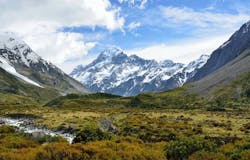Almost 60 People Hospitalized from 2016 Havelock North, New Zealand, Campylobacter Outbreak
More people than previously reported were hospitalized as a result of the 2016 campylobacter outbreak in Havelock North, New Zealand.
This is according to a new study published in the Medical Journal, which found 58 individuals were admitted with complications of acute infection from the outbreak, instead of the 42 people who were originally reported, according to New Zealand Stuff News.
In August 2016, a large waterborne campylobacter outbreak occurred in the Hawke’s Bay town after heavy rain led to the town’s unchlorinated water supply being contaminated.
Many of these hospitalizations occurred during the height of the outbreak, and some were admitted more than once with a total of 67 hospital admissions.
An estimated more than 6260 of the town's 14,000 residents, and other visitors to the region, became sick with symptoms of campylobacteriosis.
The result was diarrhoeal illness and further health complications and serious illness. According to New Zealand Stuff News, the outbreak was linked to at least four deaths.
Hawke’s Bay District Health Board medical officer of health Dr. Nick Jones, helped write the report, analyzing the medical records of 933 residents of the catchment believed to have become ill as a result of the outbreak.
“At the time we weren’t able to go through hospital notes in detail, so we were reliant on individual hospital doctors reporting the number of cases to Public Health,” said Jones, reported New Zealand Stuff News. “This reflects the reality that this passive reporting system does tend to undercount.”
This may have impacted cost estimates.
The study found the consequences were: dehydration (74.1%); electrolyte imbalance (35.8%); and acute kidney injury (27.6%) were common among hospitalized cases. Additionally, the length of hospital stays varied significantly with a median of three days, according to the study.
“The people most at risk from this kind of large outbreaks, and we're seeing it at the moment with Covid, are people who are either older or have a condition that weakens them and makes them more vulnerable,” added Jones, reported New Zealand Stuff News.
